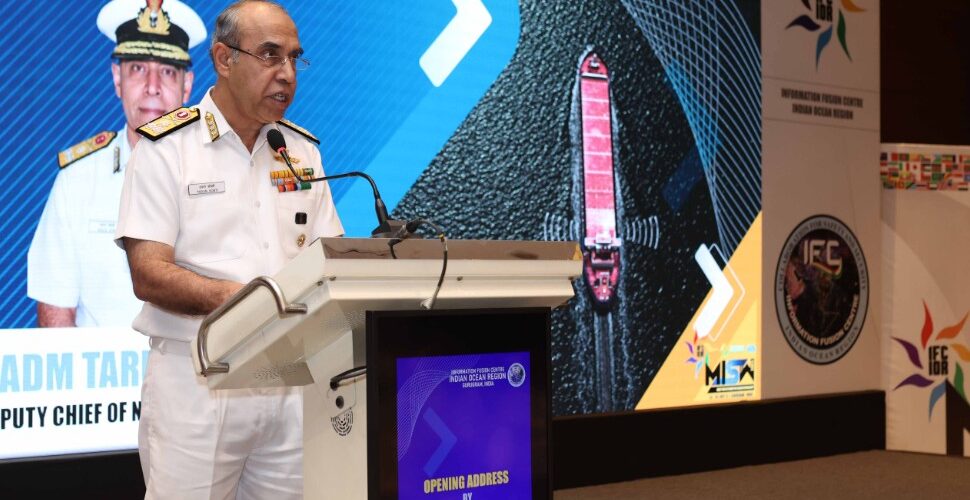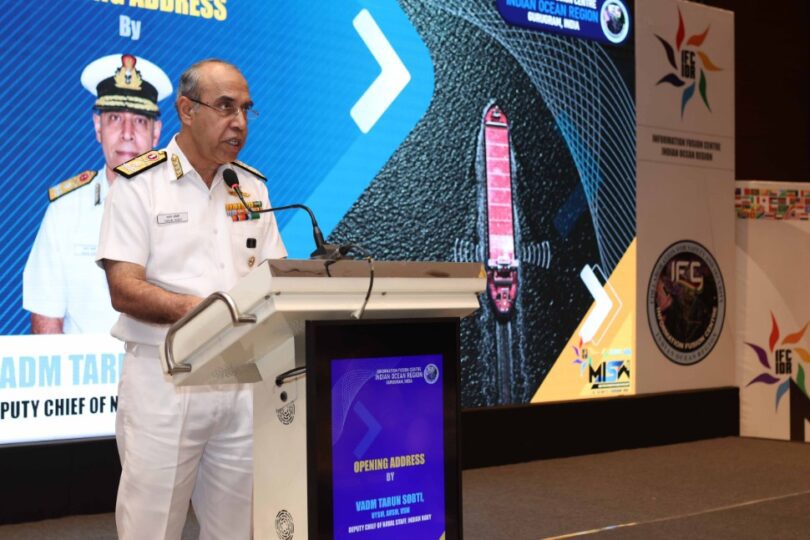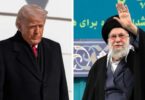Inaugurated by Vice Admiral Tarun Sobti, the Deputy Chief of Naval Staff, the Workshop and with a keynote address by Mr. Sushil Mansing Khopde, IPS, Additional Director General of DG Shipping, this workshop will bring together maritime security practitioners from 30 countries of the Indian Ocean Rim Association (IORA), the Djibouti Code of Conduct/ Jeddah Amendment (DCoC/JA) and the Bay of Bengal Initiative for Multi-Sectoral Technical and Economic Cooperation (BIMSTEC).
Conforming to India’s vision of ‘Mutual and Holistic Advancement for Security and Growth Across Regions (MAHASAGAR, which means ocean),’ IFC-IOR conducts a series of workshops and training programs, of which the MISW is the flagship event. The inaugural edition of MISW was conducted in 2019. Since its inception in 2019, MISW has matured into a premier operational forum, convening working-level professionals from across the globe to exchange best practices, strengthen interoperability and foster trust-based information sharing. More than a dialogue platform, MISW catalyses coordinated responses to transnational maritime threats such as piracy and armed robbery, drug smuggling, irregular human migration, and other incidents that disrupt global maritime commerce. By bridging operational expertise with strategic foresight, MISW reinforces the Indian Ocean Region’s collective resilience and advances a future of secure, stable, and sustainable seas.
The Indian Navy is considered a very effective force in anti-piracy operations, having responded to numerous incidents and becoming a key security provider in the region. Recent successful operations, such as the rescue of the hijacked ship MV Ruen and the apprehension of 35 pirates, highlight its capabilities, including its swift deployment, advanced surveillance, and special forces expertise. The navy has also strengthened its role through significant deployments, enhanced maritime awareness, and improved coordination with other military branches and international partners.

Indian Navy is also reputed to be a first responder for many major disasters. The Tsunami in 2004 is just one example of Indian maritime forces responding promptly with substantial assistance to countries near and far.
MISW 25, scheduled 03 - 05 Nov 2025, marks a significant stride in fostering engagement with partner nations and regional constructs. The workshop's theme, "Enhancing Real-Time Coordination and Information Sharing Across the Indian Ocean Region,” encapsulates the shared vision of participating nations. MISW 25 moves beyond foundational dialogue to focus on the operational application of maritime security information and technology in countering evolving non-traditional threats. With tailored sessions for regional constructs and a culminating table top exercise at IFC-IOR, the workshop reinforces India’s commitment to MAHASAGAR and commitment towards shaping a secure, resilient, and cooperative maritime future.
MISW 25 features thematic sessions tailored for BIMSTEC, IORA and DCoC/JA participants, with contributions from UNODC, ReCAAP ISC, RMIFC, IFC, Singapore, RCoC and leading shipping companies. Panel discussions will chart the roadmap for a resilient maritime information ecosystem, while India’s role in establishing National Maritime Information Sharing Centres (NMISCs) will be spotlighted. The workshop culminates in a high-fidelity Table Top Exercise (TTX), simulating real-world maritime threats and fostering syndicate-based contingency planning. Delegates will engage in collaborative response frameworks, reinforcing the value of shared situational awareness and coordinated action.
The Indian Ocean Region (IOR) is the bedrock of global commerce, through which a majority of the world's oil and container traffic flows. Its significance extends far beyond geographical boundaries, serving as a hub of economic activities, a bridge between continents and a stage for geopolitical dynamics. Maritime security is not merely crucial for economic stability but is vital for geopolitical equilibrium. Recognising this critical need, the IFC-IOR was inaugurated on 22 Dec 2018, with a mission to enhance maritime safety and security in the region. IFC-IOR, presently headed by Captain Sachin Kumar Singh, is a unique Centre which hosts ILOs from 15 countries and actively collaborates with 57 other maritime security constructs and 25 partner countries towards ensuring a peaceful, stable, and prosperous IOR.
MISW 2025 is a testament to the IFC-IOR’s commitment to building a cohesive, transparent, and resilient maritime information ecosystem. The outcomes of this workshop will play a significant role in charting the future roadmap for strengthening the IOR Maritime Information Ecosystem for a safer, peaceful, and more prosperous global ocean.
The Maritime Information Sharing Workshop (MISW) 2025 is related to "Op Sindoor" as an ongoing effort to improve the very capabilities and cooperation that the Indian Navy leveraged during the operation. The successful implementation of information sharing during "Op Sindoor" serves as a real-world case study validating the need for the enhanced maritime domain awareness promoted by the workshop.
Op Sindoor was an unprecedented multi-domain, tri-service operation conducted by the Indian Armed Forces in May 2025 in response to a heinous attack by Pakistani terrorists in Pahalgam, Jammu and Kashmir, in April 2025. This attack included precision strikes on nine terrorist camps in Pakistan and Pakistan-occupied Jammu and Kashmir (PoJK) using advanced technology like SCALP cruise missiles and loitering munitions. The Indian Navy played a significant role by forward-deploying a carrier battle group and other assets in the northern Arabian Sea, which created a deterrent posture that forced the Pakistani Navy to remain largely in harbour. The operation was highlighted as a demonstration of "extraordinary jointness" and integration among the Indian Army, Navy, and Air Force, showcasing India's capability for multi-domain precision warfare. Op Sindoor demonstrated the critical importance of swift, seamless information flow and joint operational capabilities among the various branches of the military and, by extension, with partner nations.
The experience from Op Sindoor is bound to feature majorly discussions and objectives of the MISW 2025. The Indian Navy's biannual Commanders' Conference, held shortly before the workshop, specifically noted the operation's significance in the backdrop of ongoing efforts to enhance combat capabilities and interoperability.
By strengthening the regional maritime information ecosystem through the IFC-IOR, this Workshop directly supports the kind of heightened maritime domain awareness and collaborative security measures that were instrumental to the success of Op Sindoor and will also be so for future operations.
The author a strategic affairs analyst and former spokesperson, Defence Ministry and Indian Army, can be contacted at wordsword02@gmail.com, https://www.linkedin.com/in/anil-bhat-70b94766/ and @ColAnilBhat8252, ttps://www.youtube.com/channel/UCPJKaZOcAt9K8fcDkb_onng
More on related topics:
India’s military tri-service exercise Trishul: https://www.thestrategicperspective.org/indias-military-tri-service-exercise-trishul/
The United States–India 10-Year Defence Framework Agreement: https://www.thestrategicperspective.org/the-united-states-india-10-year-defence-framework-agreement/
Terrorist groups create India’s second war front from the East: https://www.thestrategicperspective.org/terrorist-groups-create-indias-second-war-front-from-the-east/
Defending India’s vast maritime underwater domain: https://www.thestrategicperspective.org/defending-indias-vast-maritime-underwater-domain/
India and the G2 Factor: https://www.thestrategicperspective.org/india-and-the-g2-factor/









![Pakistan and Saudi Arabia signed a defence agreement on September 17 in Riyadh [Handout/Pakistan Prime Minister's Office]](https://www.thestrategicperspective.org/wp-content/uploads/2026/01/pak-saudi-145x100.jpg)
